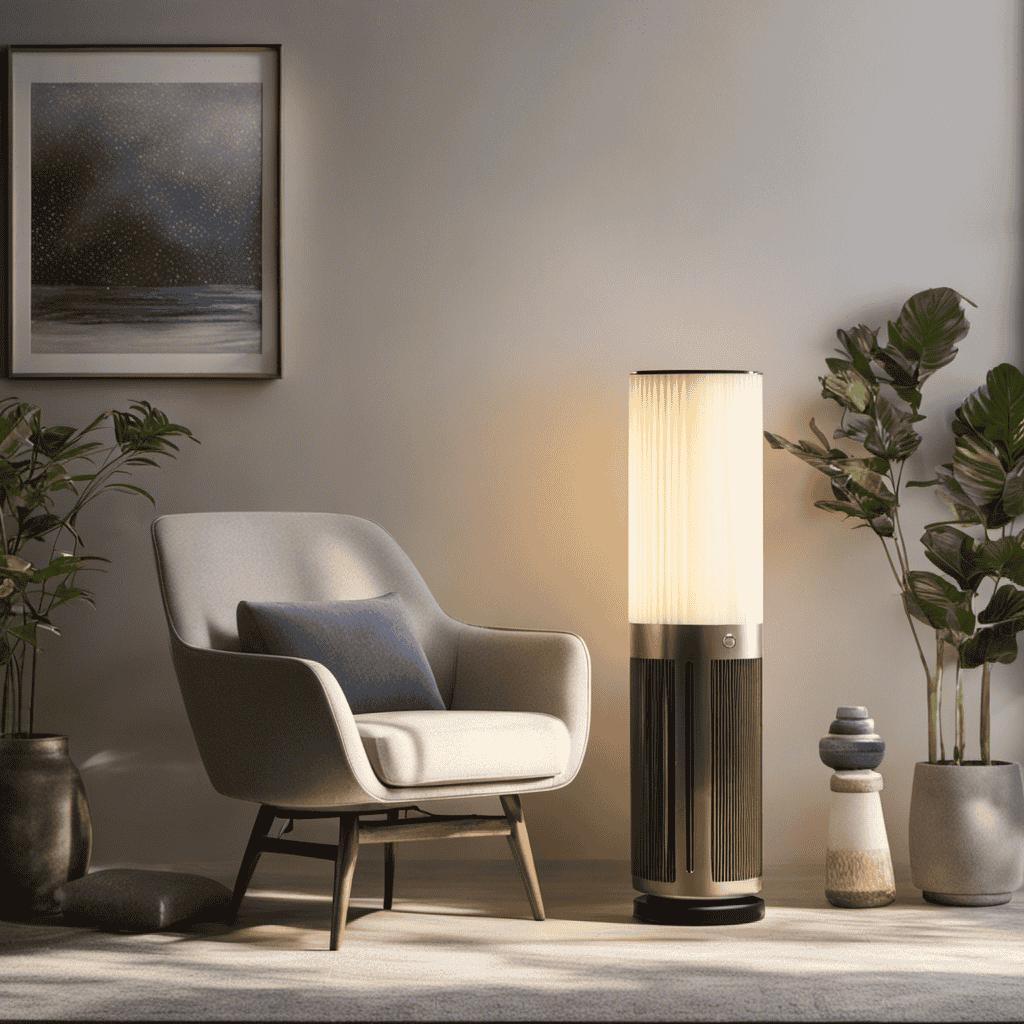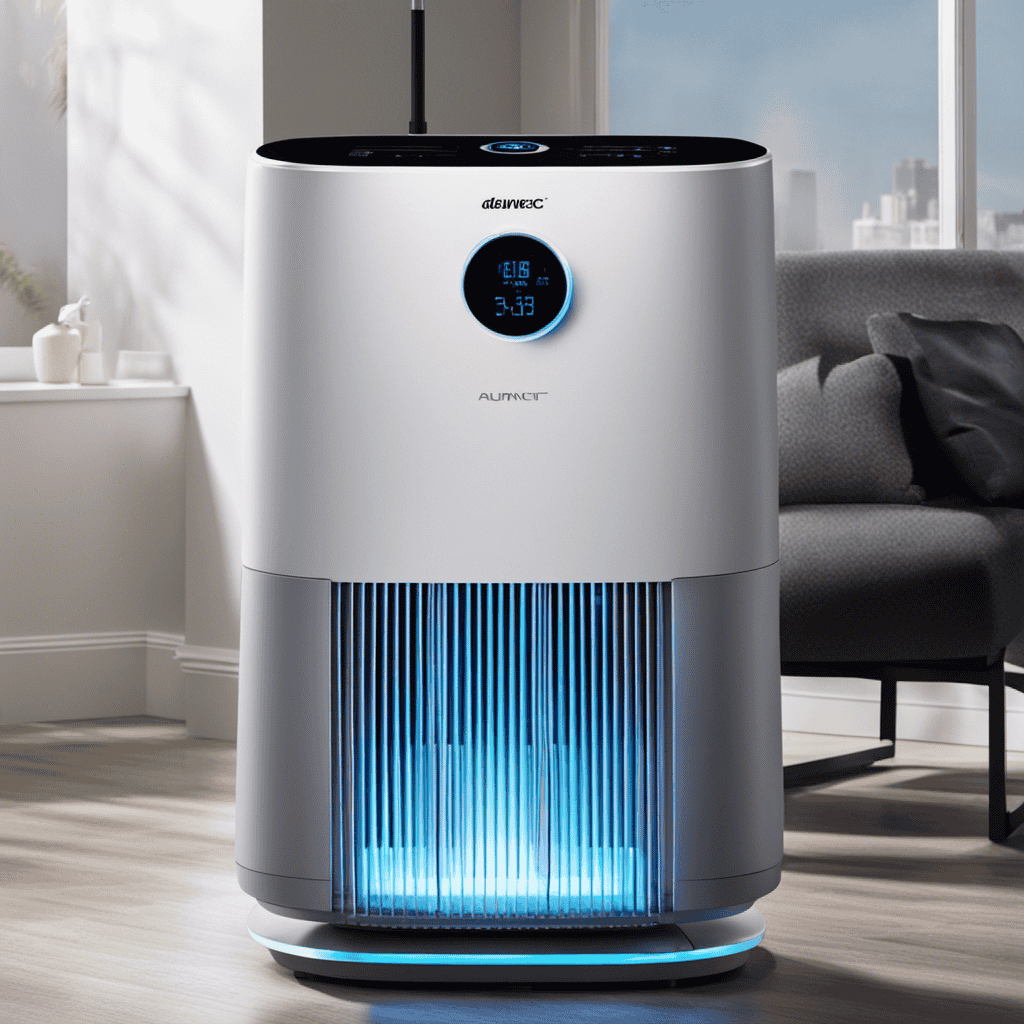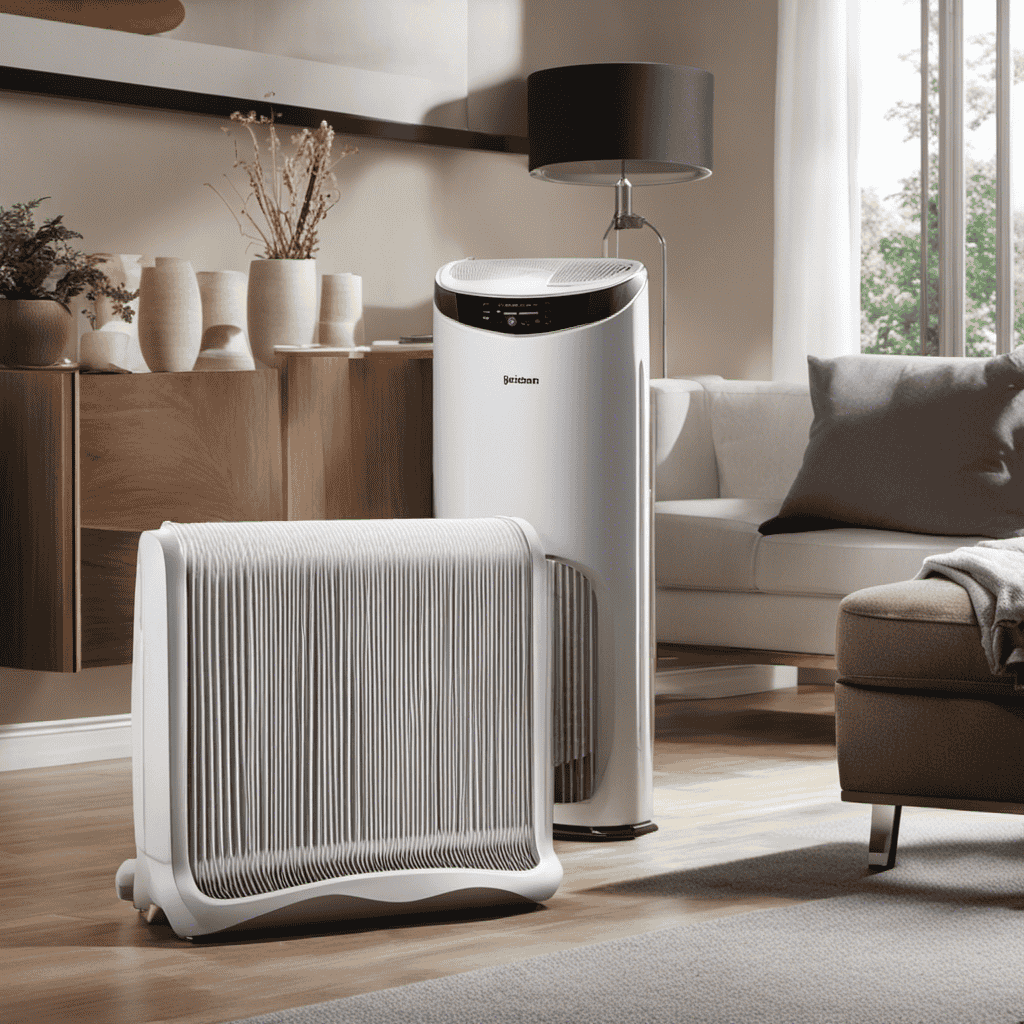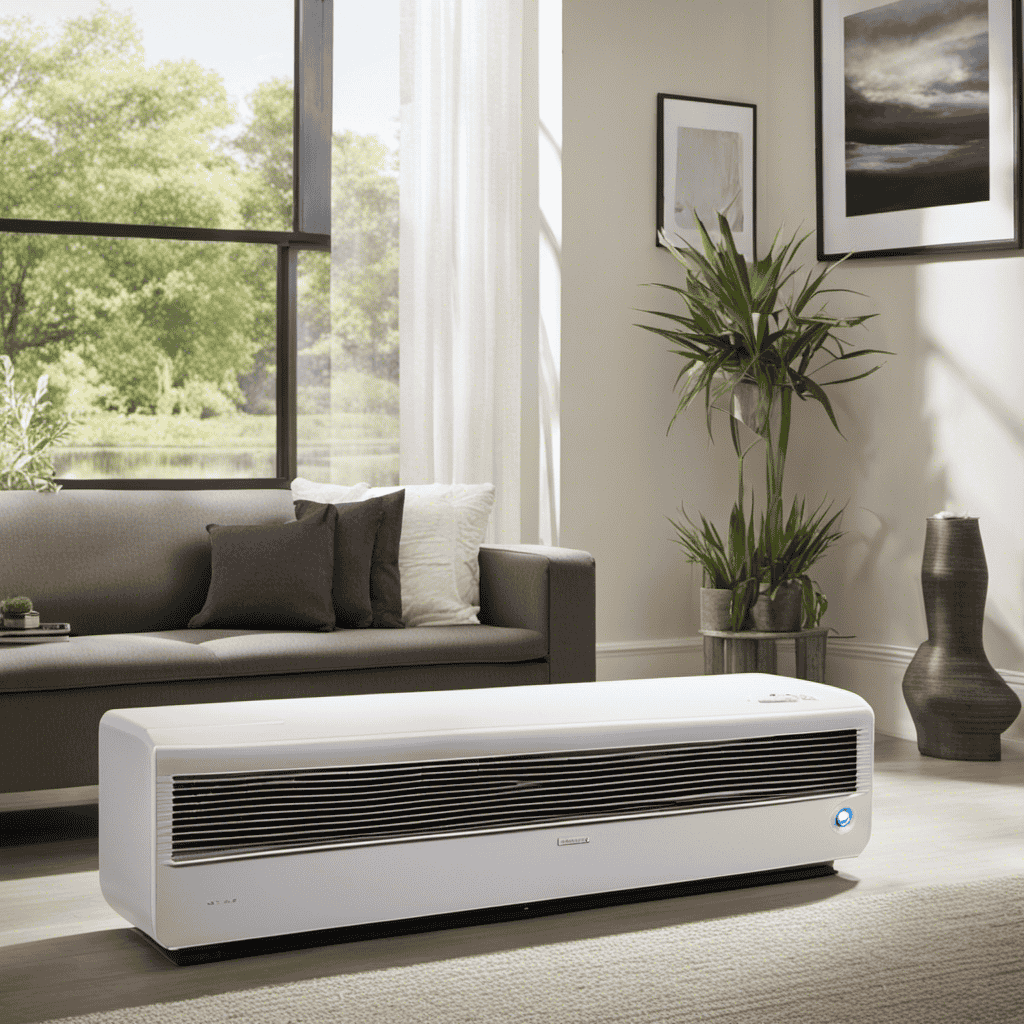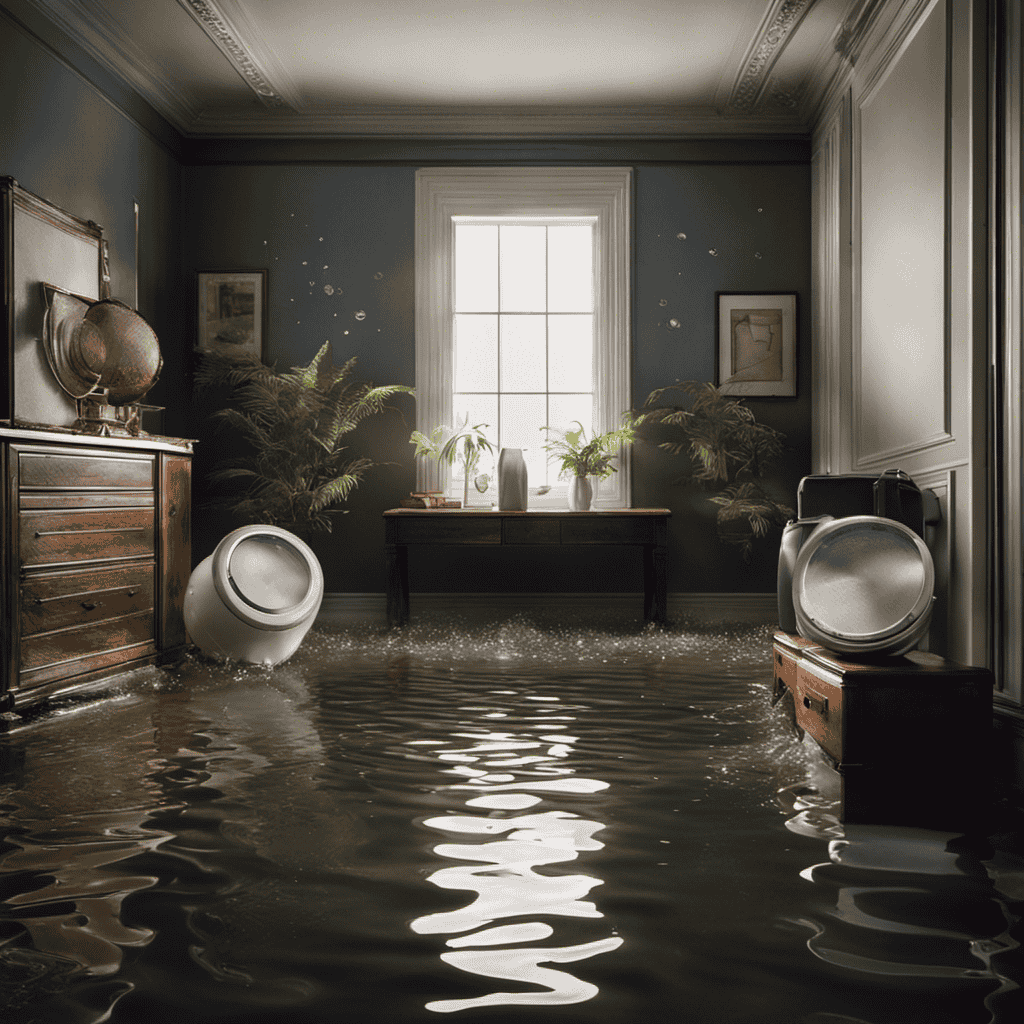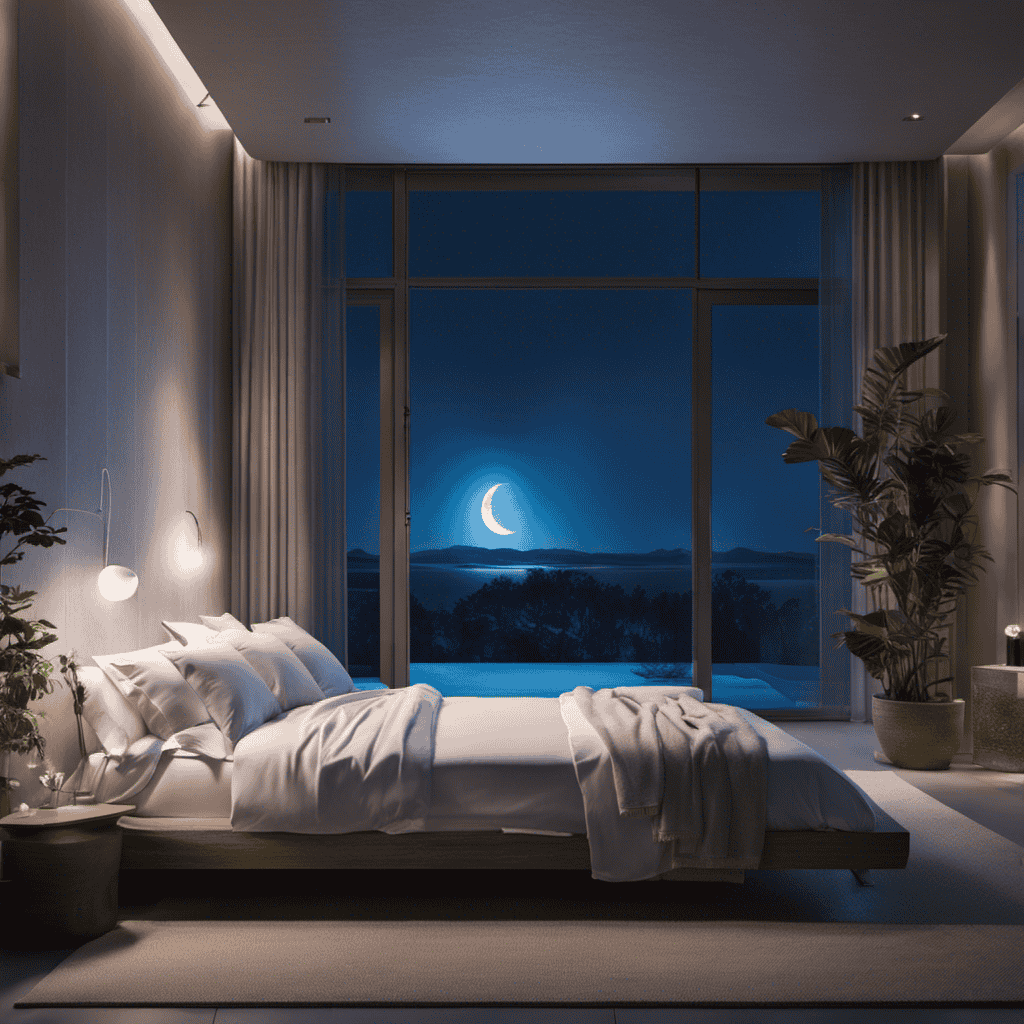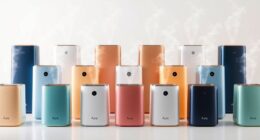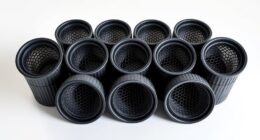As someone who prioritizes breathing clean and healthy air, I frequently ponder, ‘Why should I invest in an air purifier?’ Let me explain to you that the advantages are definitely worth it.
These innovative devices actively remove harmful pollutants from the air we breathe, ensuring a higher level of indoor air quality.
In this article, we will delve into the science behind air purifiers, explore the different types of pollutants they target, and provide tips for choosing the right one for your specific needs.
Get ready to breathe easier and discover the true value of an air purifier.
Key Takeaways
- Air purifiers improve indoor air quality by removing pollutants like dust, pet dander, pollen, mold spores, and VOCs.
- They reduce the risk of allergies and respiratory issues and alleviate allergy symptoms and respiratory problems.
- Air purifiers effectively remove dust, allergens, pet dander, pollen particles, and a wide range of indoor pollutants.
- They also trap and neutralize VOCs, improving overall indoor air quality.
Health Benefits of Air Purifiers
Air purifiers can help improve indoor air quality and reduce the risk of allergies and respiratory issues. The benefits of air purification technology are evident when considering the impact of air pollution on respiratory health.
Indoor air can contain various pollutants such as dust, pet dander, pollen, mold spores, and volatile organic compounds (VOCs). These pollutants can trigger allergies and asthma symptoms, and over time, exposure to them can lead to long-term respiratory problems.
Air purifiers work by filtering the air and removing these harmful particles, providing cleaner and healthier air to breathe. This can significantly reduce the risk of respiratory issues and alleviate allergy symptoms. Moreover, air purifiers can also remove harmful gases and odors from the air, further enhancing the overall indoor air quality.
With their ability to remove a wide range of air pollutants, air purifiers play a crucial role in creating a healthier living environment.
Types of Air Pollutants Removed by Air Purifiers
When it comes to types of pollutants, you may be surprised at how many harmful particles an air purifier can actually remove. Indoor pollution is a serious concern, as we spend a significant amount of time indoors where pollutants can accumulate. Air purifiers are designed to effectively remove a wide range of contaminants from the air, improving indoor air quality and protecting our health.
To give you a better understanding of the effectiveness of air purifiers, here is a table showcasing some common types of pollutants and how air purifiers can help remove them:
| Pollutant | Air Purifier Effectiveness |
|---|---|
| Dust and Allergens | High efficiency particulate air (HEPA) filters effectively capture and remove particles as small as 0.3 microns. |
| Pet Dander | HEPA filters can trap pet dander, reducing allergic reactions and improving respiratory health. |
| Pollen | Air purifiers with HEPA filters can capture and eliminate pollen particles, providing relief for allergy sufferers. |
| Volatile Organic Compounds (VOCs) | Some air purifiers are equipped with activated carbon filters that can absorb and neutralize VOCs, reducing their presence in the air. |
With their ability to remove a wide range of indoor pollutants, air purifiers are an effective tool in creating a cleaner and healthier indoor environment.
How Air Purifiers Improve Indoor Air Quality
By improving the quality of indoor air, air purifiers enhance the overall health and well-being of individuals. Air purifiers are highly effective in removing harmful pollutants from the air, thanks to advanced air purifier technology.
These devices utilize a combination of filtration methods, such as HEPA filters, activated carbon filters, and ionizers, to capture and eliminate airborne particles, allergens, and odors. HEPA filters are particularly effective in trapping microscopic particles as small as 0.3 microns, including dust, pollen, pet dander, and mold spores.
Activated carbon filters excel at absorbing volatile organic compounds (VOCs) and removing unpleasant odors. Ionizers release negatively charged ions into the air, which attach to positively charged particles and cause them to settle.
This multi-layered approach ensures that the air purifier effectively reduces indoor air pollution, resulting in cleaner, fresher air for improved respiratory health.
Choosing the Right Air Purifier for Your Needs
To find the right air purifier for your needs, consider factors such as room size, filtration technology, and noise level. Air purifiers come with a variety of features that can enhance their performance. Some models offer multiple fan speeds, allowing you to adjust the airflow based on the room size. Others may have a programmable timer, enabling you to set the purifier to operate at specific times.
When it comes to filtration technology, you will want to look for HEPA filters, which are highly effective at capturing airborne particles. Additionally, consider the noise level of the air purifier, especially if you plan to use it in your bedroom or office.
While cost is an important consideration, it is essential to prioritize the air purifier’s performance and features over the price tag. By choosing the right air purifier, you can ensure cleaner and healthier indoor air for yourself and your family.
Now that we have discussed the factors to consider when choosing an air purifier, let’s address some common misconceptions about air purifiers.
Common Misconceptions About Air Purifiers
Don’t believe the misconceptions about air purifiers – they are not just expensive gadgets, but can actually improve your indoor air quality.
When it comes to filter effectiveness, air purifiers are designed to capture and remove various pollutants from the air, such as dust, pollen, pet dander, and mold spores. The efficiency of the filters will depend on their type and quality. High-efficiency particulate air (HEPA) filters are widely considered to be the most effective, capable of removing up to 99.97% of particles as small as 0.3 microns.
As for energy consumption, modern air purifiers are designed to be energy-efficient. Look for models with energy-saving features, such as adjustable fan speeds and programmable timers, to reduce energy usage without compromising performance.
Maintenance Tips for Long-lasting Air Purifier Performance
Regularly cleaning and replacing the filters is essential for ensuring optimal performance and longevity of your air purifier. The maintenance of your air purifier plays a crucial role in improving the air quality in your home.
Here are some important tips to keep in mind:
- Clean or replace the filters every 3 to 6 months, depending on usage, to remove dust, pollen, and other airborne particles efficiently.
- Vacuum the exterior of the air purifier regularly to prevent the buildup of dirt and dust.
- Check the manufacturer’s instructions for specific maintenance recommendations and follow them diligently.
By following these maintenance tips, you can ensure that your air purifier continues to operate at its best, effectively removing pollutants from the air and improving the overall air quality in your home.
Don’t overlook the importance of regular maintenance to maximize the benefits of your air purifier.
The Role of Air Purifiers in Allergy and Asthma Management
Remember, keeping your filters clean and replacing them regularly is crucial for managing allergies and asthma symptoms effectively.
When it comes to air purifiers, their effectiveness in improving respiratory health cannot be overstated. These devices work by removing airborne particles, such as dust, pollen, pet dander, and mold spores, from the air we breathe. By reducing the presence of these allergens, air purifiers can help alleviate symptoms like sneezing, coughing, and wheezing, providing relief for those with allergies and asthma.
Moreover, air purifiers can also remove harmful pollutants and toxins, such as volatile organic compounds (VOCs) and cigarette smoke, further enhancing indoor air quality.
However, it is important to note that air purifiers are not a cure-all solution and should be used in conjunction with other allergy and asthma management strategies, such as medication and allergen avoidance.
Frequently Asked Questions
How Do Air Purifiers Work?
Air purifiers work by filtering out airborne contaminants, such as dust, pollen, and pet dander, improving indoor air quality. They provide numerous benefits, including reducing allergies and asthma symptoms. Regular maintenance, like changing filters, ensures optimal performance.
Can Air Purifiers Remove All Types of Pollutants?
Air purifiers can remove a wide range of indoor pollutants, including allergens, dust particles, and harmful chemicals. They provide significant health benefits by improving air quality and reducing the risk of respiratory issues.
Are Air Purifiers Effective Against Viruses and Bacteria?
Air purifiers can be effective against viruses and bacteria, promoting better respiratory health. They filter out harmful particles, reducing the risk of airborne transmission. However, it’s important to choose a purifier with a HEPA filter for optimal results.
Do Air Purifiers Have Any Negative Side Effects?
Air purifiers can have positive benefits, but it’s important to consider potential long-term effects. They can help remove pollutants and allergens from the air, but some models may produce ozone or require regular maintenance.
Can Air Purifiers Eliminate Odors From the Air?
Yes, air purifiers can eliminate odors from the air. They work by trapping and removing airborne particles, including those that cause unpleasant smells. This can be especially helpful for people with allergies or pet dander sensitivities.
Conclusion
In conclusion, the air purifier is like a guardian angel, silently working to protect our health by removing harmful pollutants from the air we breathe.
With its advanced technology, it ensures that our indoor air quality is at its best, providing numerous health benefits.
By understanding the role of air purifiers in managing allergies and asthma, and by choosing the right one for our needs, we can create a healthier and safer environment for ourselves and our loved ones.
So let us embrace the power of air purification and breathe in the freshness it brings.
